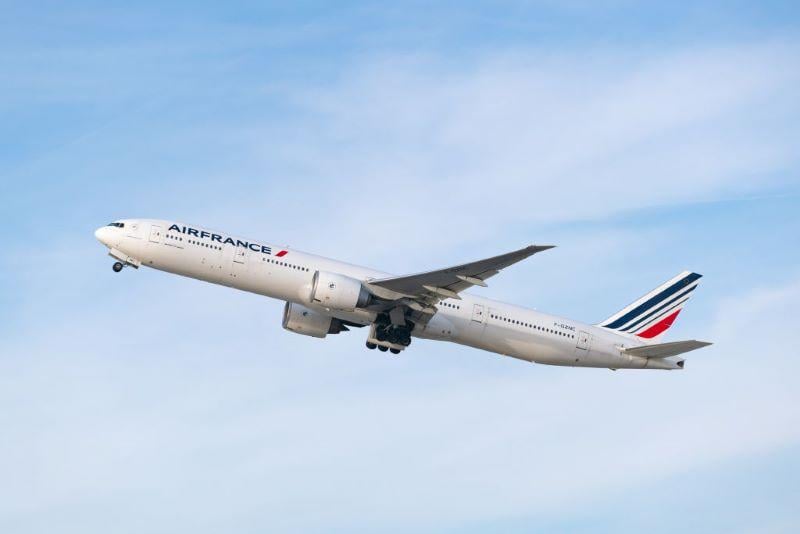
Air France Boeing 777-300ER
In line with Aviation Week Events MRO Europe, this week’s Carbon Analysis looks at the top four European full-service carriers by fleet size.
These are Air France, British Airways, Lufthansa and Turkish Airlines. Emissions are presented for September 2019 and 2024 in kgCO2/Available Seat Kilometer (ASK).
The chart tells a story of improvement. CO2 per ASK has generally fallen between the baseline year 2019 and the soon-to-be new baseline year, 2024.
The biggest reduction in emissions comes courtesy of Air France. This largely occurred early in the period, when Air France removed all highly emitting Airbus A380s from fleet. Add to this a significant increase in seat capacity across the Air France fleet, particularly its Boeing 777s, and the result is a large step-up in efficiency.
British Airways (BA) display a similar change in its CO2 per ASK. This time, however, it is the 747 that drives this. Early in the period, every 747, all 33 of them, are removed from the fleet. As a result, emissions per ASK plummet. That said, little improvement has been seen since then; reduction of BA’s A380 operations would remedy this.
Turkish Airlines puts in a strong all-round performance here. With only a small reduction, but from a lowered starting position, the airline shows efficiency throughout. The rapidly growing carrier expands its fleet with A320neo, 737 MAX, A350 and 787 family aircraft, all boosting efficiency.
Lastly, Lufthansa does not perform well here. Little-to-no reduction is seen, despite starting from a reasonably good position, owing to its early adoption of the A320neo family. However, the German flag carrier stands to make vast improvements by removing its four-engine beasts—the A380s, A340s and 747s—from its fleet.





